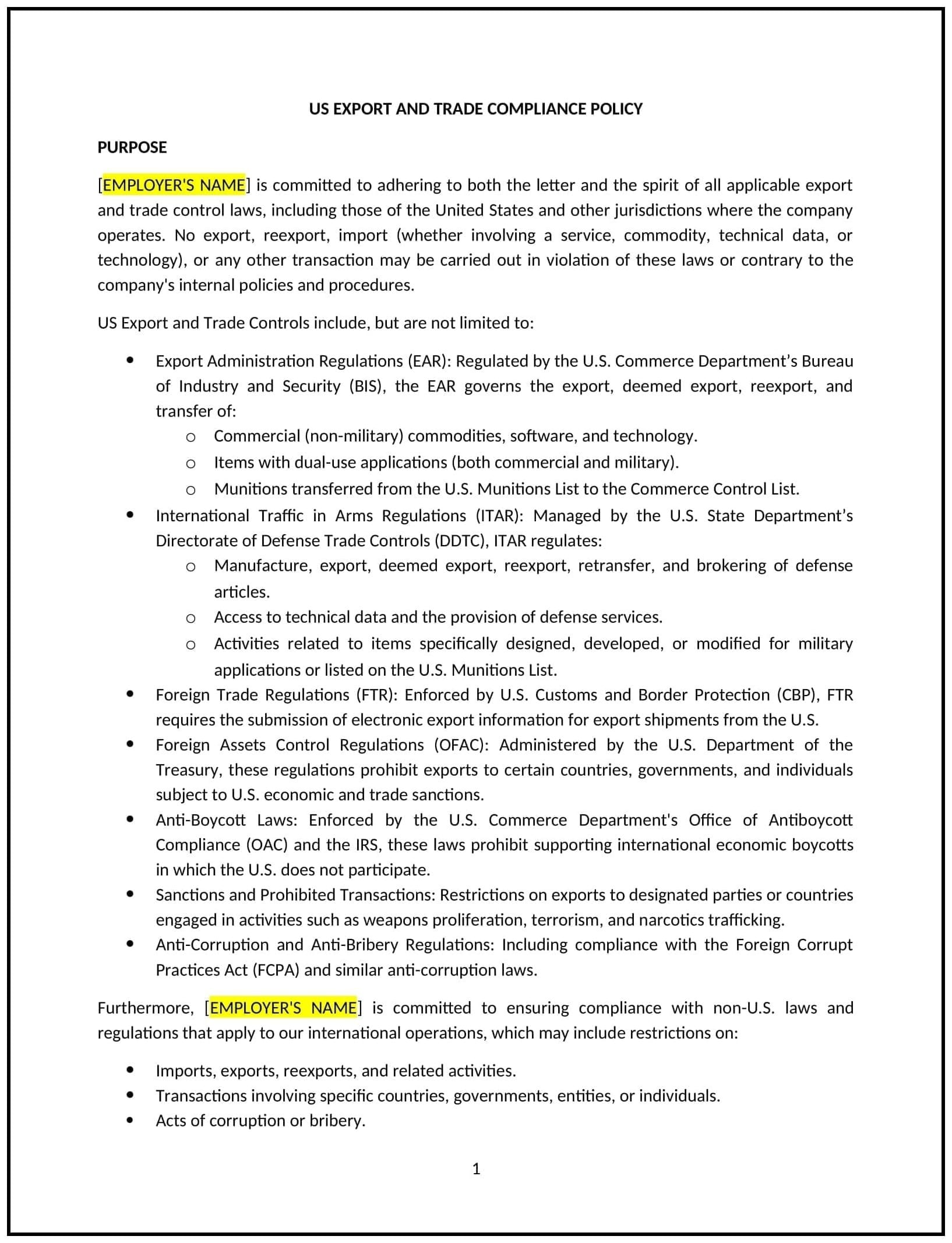US export and trade compliance policy (Rhode Island): Free template
Got contracts to review? While you're here for policies, let Cobrief make contract review effortless—start your free review now.

Customize this template for free
US export and trade compliance policy (Rhode Island)
This US export and trade compliance policy is designed to help Rhode Island businesses navigate the complexities of international trade regulations. It outlines procedures for adhering to export controls, trade sanctions, and customs requirements.
By adopting this policy, businesses can reduce risks, avoid penalties, and maintain ethical trade practices.
How to use this US export and trade compliance policy (Rhode Island)
- Define compliance requirements: Clarify the regulations businesses must follow, such as the Export Administration Regulations (EAR) and International Traffic in Arms Regulations (ITAR).
- Establish screening procedures: Outline steps for screening customers, partners, and transactions to ensure compliance.
- Address recordkeeping: Specify documentation requirements for export transactions and audits.
- Train employees: Educate staff on export controls, trade sanctions, and compliance procedures.
- Monitor compliance: Regularly review export activities to identify and address potential risks.
- Review and update: Assess the policy annually to ensure it aligns with evolving regulations and business needs.
Benefits of using this US export and trade compliance policy (Rhode Island)
This policy offers several advantages for Rhode Island businesses:
- Reduces risks: Helps businesses avoid penalties, fines, and legal issues related to non-compliance.
- Supports ethical trade: Demonstrates a commitment to following international trade laws and regulations.
- Enhances reputation: Builds trust with customers, partners, and regulatory authorities.
- Improves efficiency: Provides a structured approach to managing export and trade activities.
- Aligns with best practices: Offers a framework for maintaining compliance with complex trade regulations.
Tips for using this US export and trade compliance policy (Rhode Island)
- Communicate the policy: Share the policy with employees and include it in the employee handbook.
- Provide training: Educate staff on export controls, trade sanctions, and compliance procedures.
- Monitor compliance: Regularly review export activities to identify and address potential risks.
- Address issues promptly: Take corrective action if compliance violations are identified.
- Update regularly: Assess the policy annually to ensure it aligns with evolving regulations and business needs.